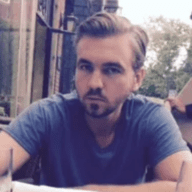News of COVID-19 still occupies nearly every headline. While newscasters are spending most of their airtime reiterating the same dozen or so talking points, one thing that isn’t getting enough attention is how the pandemic is directly impacting the lives of rare disease patients. In many cases they are the people most at risk when it comes to the virus. Having or being treated for a rare disease leaves many of these patients immunocompromised.
COVID-19 has changed the way we live our lives. Social distancing and general isolation are having an impact on everything we do. Still, this impact is especially significant for members of the rare disease community.
I spoke with Antonio Maltese, creator of the Huntington’s Initiative, about how coronavirus is affecting his efforts as an advocate and his well-being as someone with Huntington’s disease.
Antonio had an elective surgery on the books for later in the year, but the hospital at which he was to undergo the procedure has since cancelled all elective surgeries until further notice. This means that he will have to wait for his condition to deteriorate to a point where emergency surgery is necessary. He knows this changes a lot about the course of action, saying, “If it goes from elective to emergency, I’m not going to get the same type of hip, I’m not going to get the same type of procedure, it’s not going to be robotic assisted, it’s not going to be a 30-year outlook, it’s not going to be the same type of surgeon…I’m just learning all this in the middle of this crisis,” he said.
The delay also means that Antonio will be on opioids for a longer period of time, increasing his risk of dependency. “I just don’t like being on Oxycodone; it sucks everything out of me.”
Anyone with a rare disease can tell you that life is filled with uncertainty, but coronavirus has taken that to extremes. Antonio hopes that the pandemic has a fundamental impact on life. “I don’t think things are going to go back to normal. I think there is going to be a paradigm shift in 2021. This all goes to show that when there is awareness for something, there is action.” When COVID-19 is addressed, Antonio plans to build the kind of awareness for rare diseases that is necessary for sparking action.

